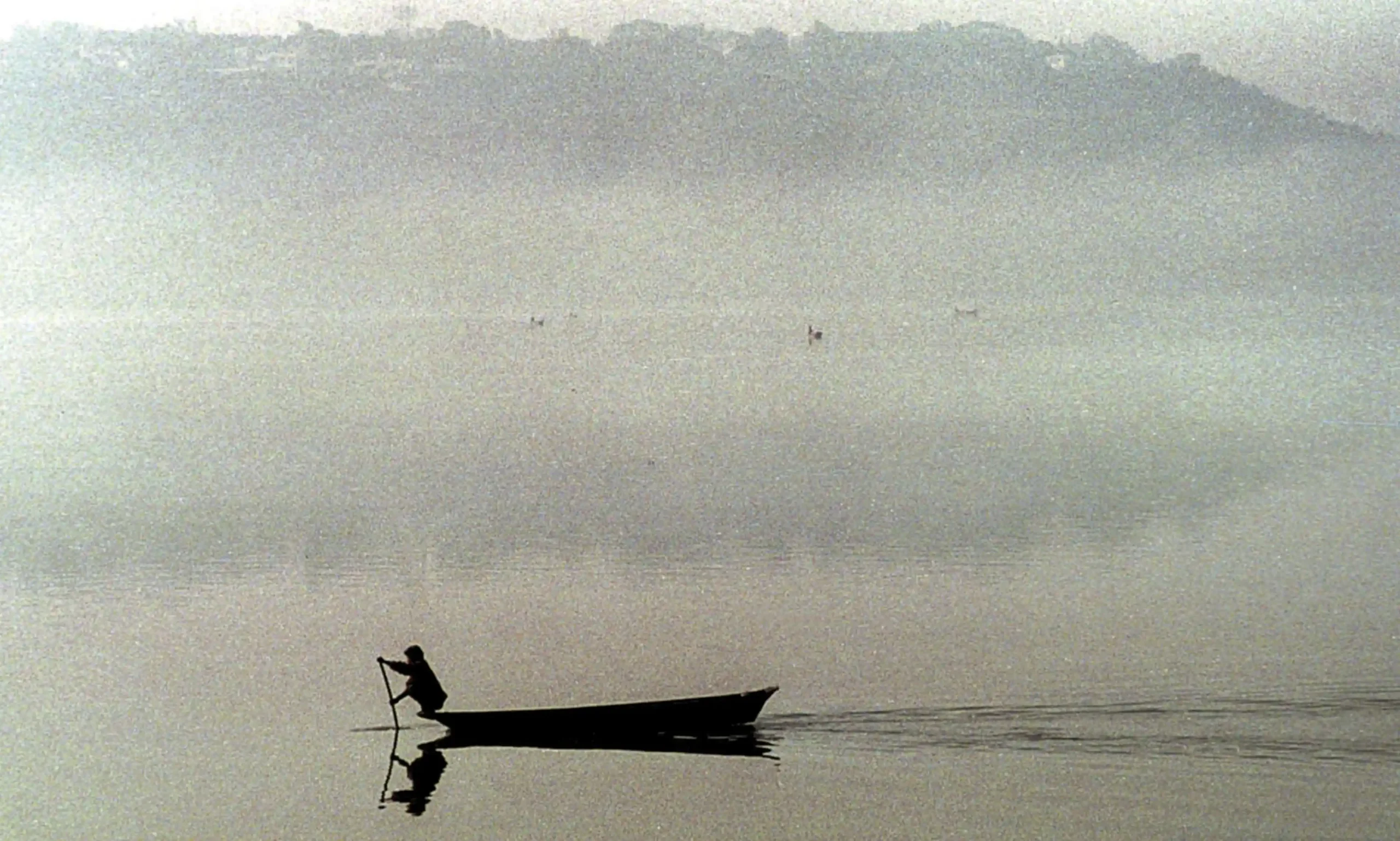
‘But the lake looks endless. / And my boat’s increasingly but a slowish swimmer.’ Photograph: EPA
An enigmatic lyric reflects on the relationship of memory and shame
For Nothing Tender About It
If as shame is to memory, so too desire,
then is this desire, this cloak of shadows,
that I wrap close around me, that I
refuse to take off?
But the lake looks endless.
And my boat’s increasingly but a slowish swimmer,
across the waves – I’ve known
hurt, I mean; and I have been afraid. Sometimes
the difference between forgetting
to bring along artillery and showing up
on purpose to the war unarmed
is just that: a difference. Sometimes a lost tune,
unreckoned on, unearned, resurfaces anyway. Just because.
Am I not the animal by belief alone I myself make possible?
This week’s poem is by Carl Phillips, and is included in Then the War and Selected Poems 2007-2020, a welcome collection of earlier and new work by an unusually far-reaching poetic explorer. An interview with the Kenyon Review provides illuminating context, plus biography.
For Nothing Tender About It, a sonnet-like lyric, appears on the page after the title-poem of its collection, Pale Colors in a Tall Field. The latter interrogates remembered love and memory itself in a life “where there’s so much I’d rather not remember that / to be asked to do so can seem a cruelty”. The contrast of love perceived as “rescue” and as something “more gladiatorial” seems to linger in the turns of the sonnet, and underlines the ambiguity of the title.
This week’s poem opens with an extended question that immediately sets the reader asking themselves what “shame is to memory”. Shame is entwined with memory in that a particular memory recalls and recreates – even physically, perhaps – the sensation of shame. An experience that prompts shame can deepen and fix its memorability, and, of course, also ensure therapeutic forgetting. Remembered desire can have both these effects. Yet if it’s analogous with a closely wrapped “cloak of shadows”, remembered desire may be comforting and protective (tender, in fact) – the opposite of shame.
The first quatrain resembles that cloak of shadows in its compactness. Subsequently, the thought moves from seductive brain-tease – chiefly, though not entirely, abstract – to allegory. The pattern of shorter and longer lines increases the sense of simultaneous disturbance and capacity in the second quatrain. The lake simply “looks endless”, but the boat is tellingly described as “increasingly but a slow swimmer”, the quaintness of the “but” enhancing the leisured but slightly laborious pace of the metaphorical oars. The voyage seems to be into memory seen as an endless stretch of water, since, after the third line caesura, dawn the veiled discoveries: “I’ve known / hurt, I mean; and I have been afraid.” Breaking the line and heralding the new stanza with “Sometimes” effectively sustains continuity and frames what’s almost an aphorism (although a carefully protracted one): “Sometimes // the difference between forgetting / to bring along artillery and showing up / on purpose to the war unarmed // is just that: a difference.” This is compelling and the reader may want to agree with it wholeheartedly before working out that it’s presenting a challenge to the slickness of proverb-like reasoning. To forget the artillery may not be the result of a subconscious intention to be vulnerable and “unarmed”. It might be a careless mistake.
While in the first line of the couplet, the “Sometimes” that’s placed after the caesura suggests an echo with the previous “Sometimes” it’s not immediately clear how the unexpectedly remembered “lost tune” is related to the forgotten artillery. The connection, I think, is the randomness shared by both remembering and forgetting, but also the antithesis between the tender and the gladiatorial.
Phillips’s unsentimental, even throwaway, treatment of the emotive issues of memory is bracing, and, like the structure, a challenge to sonnet tradition. An extra challenge comes in the shape of the extended, Latinate, leisurely final question, which asks if the solid identity of the “animal” isn’t created and held together by its own act of faith. A concept associated with Schopenhauer, perhaps? Posters who are better philosophers than me will have more to say about the origins of the idea. In the context of the poem, it returns my thought to that “slowish swimmer” of a boat, and the constant rhythmic strokes which keep the body of thought moving forwards and defying gravity.





